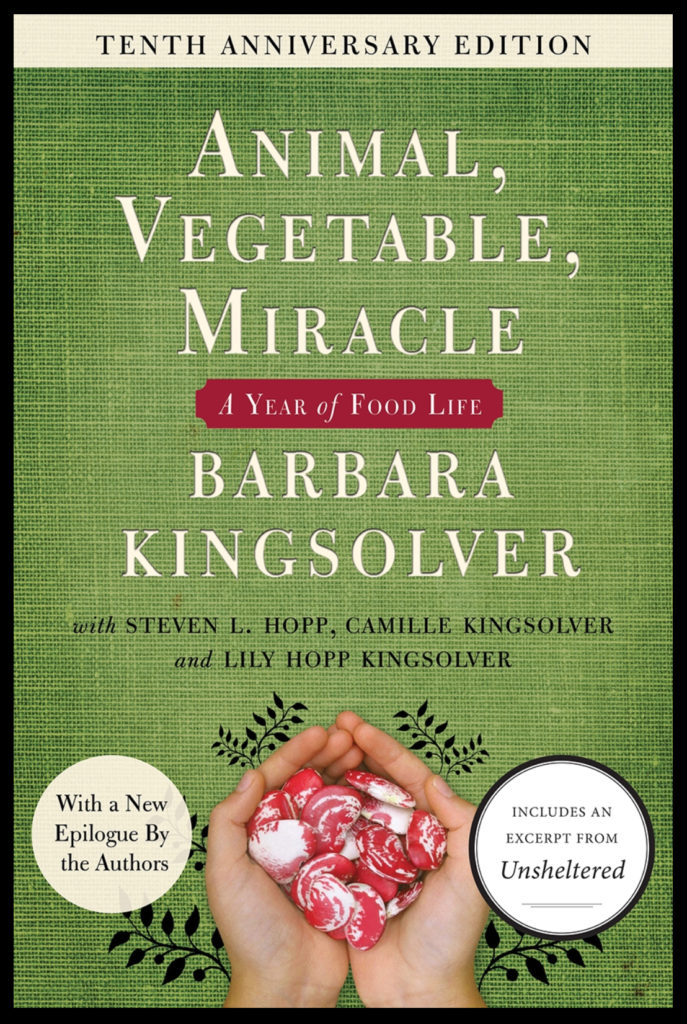

Two members grew up farming and canning and cooking like Kingsolver, and learned nothing new. We managed to agree on a few things: that we could never, ever do what this family did, and that the turkey chapters were the best, especially the one about teaching them to have sex.īut there were notes of discord.

(Runny but still deelish with vanilla ice cream!)Ī meaty discussion followed about not just the book but about how to find restaurants in our area that serve local (go to ), an upcoming talk by Paul Roberts, author of The End of Food, the effects of localism on publishing, and Monsanto (one member, an occupational health doc, declared it “Evil!” and said to quote her – Several had tried recipes, including our hostess, whose basil blackberry crumble is here. Starting with the positive, most reported variants of “It changed my life.” One member had tried raw asparagus (“amazing, sweet as sugar”). Of the many books discussed by the Quintessence Book Club, I can’t remember another that’s elicited the range of reactions that this one did.


I’m jealous of Kingsolver’s daughters for having all that. But it goes deeper: I want to have grown up in a family that cared about food, that made pizza together every Friday night. Damn, I want a nearby farm-based diner (coz there’s no way I’d ever cook it myself). Sadly, my take-away feeling was frustration at not being able to find the kind of food Kingsolver and her family eat. I disagreed with nothing, nodded throughout, and laughed often. So okay, I loved it, just as much as I love her fiction. Their website is a great resource with lots of good links and even stories from others around the world. But contrary to my expectations, it was far from a farm journal with recipes (yes, it has a few.) There are also trips to other farms (including a myth-busting story of visiting their Amish friends), food adventures in Italy, and the universal recounting of holiday get-togethers – so really good story-telling. Down with fast food, up with slow, local food!īut as much as it chronicles the growing and preparing of food, it’s a story about family – because this had to be a family project, and the book even includes sidebars by Kingsolver’s biology professor husband and her 18-year-old daughter, the aspiring nutritionist and surprisingly good writer. It’s also her passionate plea for all Americans to rethink our eating habits. Review by my book club, reported by SusanĪnimal, Vegetable, Miracleis Barbara Kingsolver’s story of her family’s one-year experiment in eating food they grow themselves in Virginia, supplemented by the local farmers and only a few nonlocal items like coffee.


 0 kommentar(er)
0 kommentar(er)
